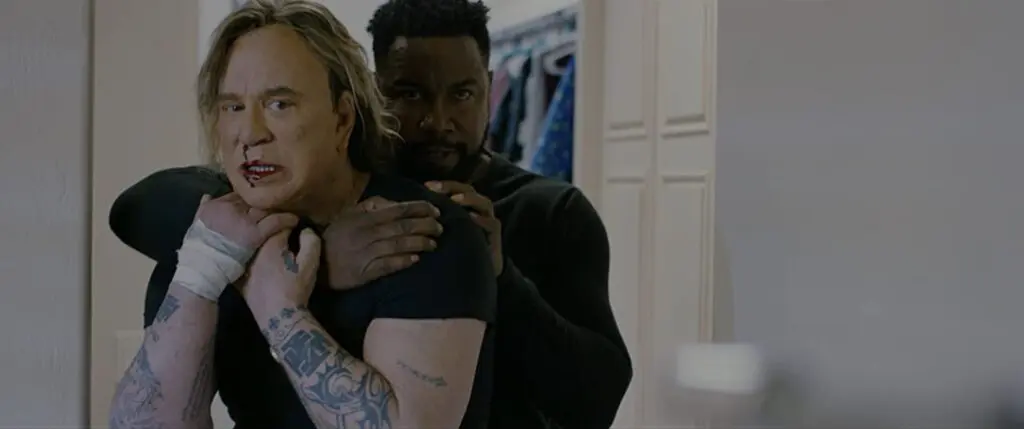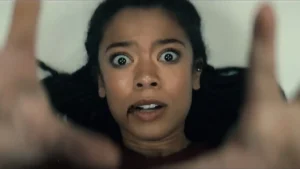Summary
The Commando spends far too much time on its lethargic script while wasting the action talents of Michael Jai White.
I’m quite a simple man, so perhaps I’m in the minority in wanting actors who’re very good at one specific thing to just stick to the thing they’re good at. In other words, I don’t tune into a Michael Jai White movie called The Commando expecting to see him spend most of the runtime discussing his PTSD with his therapist over Zoom.
Jai White’s character in this, James, is a DEA agent who has PTSD from a stilted opening firefight in which he accidentally guns down three innocent hostages. He’s a tough family man who is forced to reckon with the idea that he’s tactically and emotionally fallible, which would be a worthwhile theme in a different film. The Commando, though, isn’t all that interested in James’s interiority. His mental health struggles mostly manifest as lethargic one-sided conversations and ill-timed flashbacks. A later scene in which he becomes suddenly capable again when it’s time for the action is intended as a fist-pumping bit of catharsis but mostly undermines what little idea the script had about PTSD in the first place.
The villain here is the ghoul formally known as Mickey Rourke, who plays Johnny, a robber who has spent years of his lengthy incarceration dreaming about recovering the hefty pile of loot he stashed under the floorboards of a house. Finally free as of the movie’s earliest scenes, he assembles his old crew, which includes UFC fan-favourite Donald “Cowboy” Cerrone, who commits a bit of overacting that had me absolutely rolling, to recover the dough. It turns out James and his family, including his two daughters, are living in the house where the money is.
The Commando was shot in just 11 days, and you can tell. It employs limited locations, and each scene seems to be strung together from first takes. Perhaps this also explains the surprising lack of action, which is notoriously complex to film (at least if you want it to look good). What’s there is okay, I suppose, but hardly worth the effort of plowing through the interminable scenes of badly written dialogue one must endure to reach the fisticuffs. Director Asif Akbar puts a lot of faith in our desire to see James and Johnny finally square off, but I must confess that if I wasn’t professionally obligated to sit through a film until the credits, I probably wouldn’t have bothered. And I probably would have been better off.
Fans of both Rourke and Jai White will wish they saw more of both, but it’s the former who surprisingly makes his presence felt. It helps that he’s playing to his strengths, while the latter is saddled with an overblown guilty conscience that doesn’t suit him. If The Commando were a 15-minute short comprising only the final few scenes, it would have been a better showcase for both actors, and a mercy for the fanbases who make a point of checking out their work.




